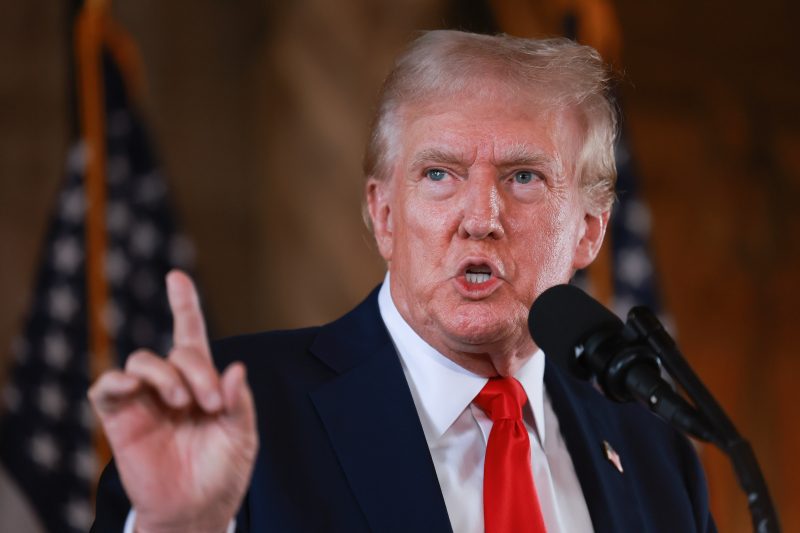Donald Trump suggested in a news conference Thursday that he is open to curbing access to abortion pills through federal regulations, declining to rule out a sweeping move that some antiabortion allies have advocated.
Trump has previously praised a Supreme Court ruling that maintained access to the key abortion drug mifepristone, saying, “I agree with their decision to have done that, and I will not block it.” But the GOP presidential nominee muddled his position at Thursday’s news conference at his Mar-a-Lago Club.
A reporter noted that there are ways the federal government could restrict abortion besides a national ban and asked if Trump would direct his Food and Drug Administration to “revoke access” to mifepristone. Trump did not reject the idea.
“Sure, you could, you could do things that will be, would, would supplement,” the GOP presidential nominee said. “Absolutely. … But you have to be able to have a vote, and all I want to do is give everybody a vote.” (Trump has defended his appointments of Supreme Court justices who overturned Roe v. Wade by saying that the decision allowed states and voters to weigh in on the issue.)
Mifepristone is part of a two-drug regimen to end a pregnancy through the first 10 weeks of gestation. Most abortions in the United States are now carried out via medication, and curbing access to mifepristone would be hugely consequential.
Trump’s comments on Thursday could undercut his efforts to distance himself from the hardest-line abortion opponents in his party. He previously rebuffed activists’ pressure to campaign on a national restriction, framing it as a states’ issue, and supported a new GOP platform that angered some antiabortion activists. Trump’s campaign did not immediately respond to a request to clarify his position on mifepristone. Vice President Kamala Harris’s campaign has made abortion access a central campaign issue and immediately highlighted Trump’s Thursday comments.
Some antiabortion activists have long argued that the federal government’s decades-ago approval of mifepristone was flawed and should be revoked, but such a move would face legal hurdles. Antiabortion groups also say the FDA could place restrictions on the medication — for instance, by reinstating a requirement that patients obtain them in person rather than through the mail.
Trump has sent mixed signals on abortion policy throughout his campaign. During his debate this summer with President Joe Biden, Trump was asked if he would “block abortion medication.”
“First of all, the Supreme Court just approved the abortion pill. And I agree with their decision to have done that, and I will not block it,” Trump said.
The court had actually declined to limit access, siding with the Biden administration and manufacturer of mifepristone on the grounds that the plaintiffs did not have standing to sue over the issue.
In his Thursday news conference, Trump continued his response to the mifepristone question by saying, “There are many things on a humane basis that you can do outside of that, but you also have to give a vote, and the people are going to have to decide.”
Trump, a Florida resident, also declined to say how he would vote on a ballot measure that seeks to override the state’s ban on abortion after six weeks of pregnancy.
“I think the abortion issue has been very much tempered down,” he said. “I answered, I think, very well in the debate, and it seems to be much less of an issue.”
Michael Scherer and Isaac Arnsdorf contributed to this report.

